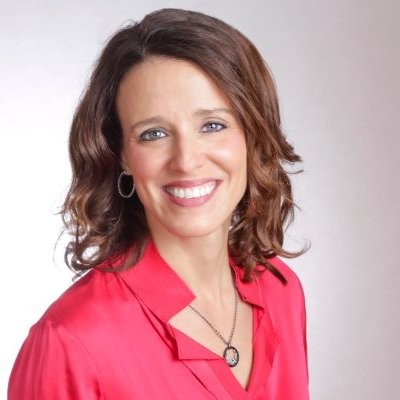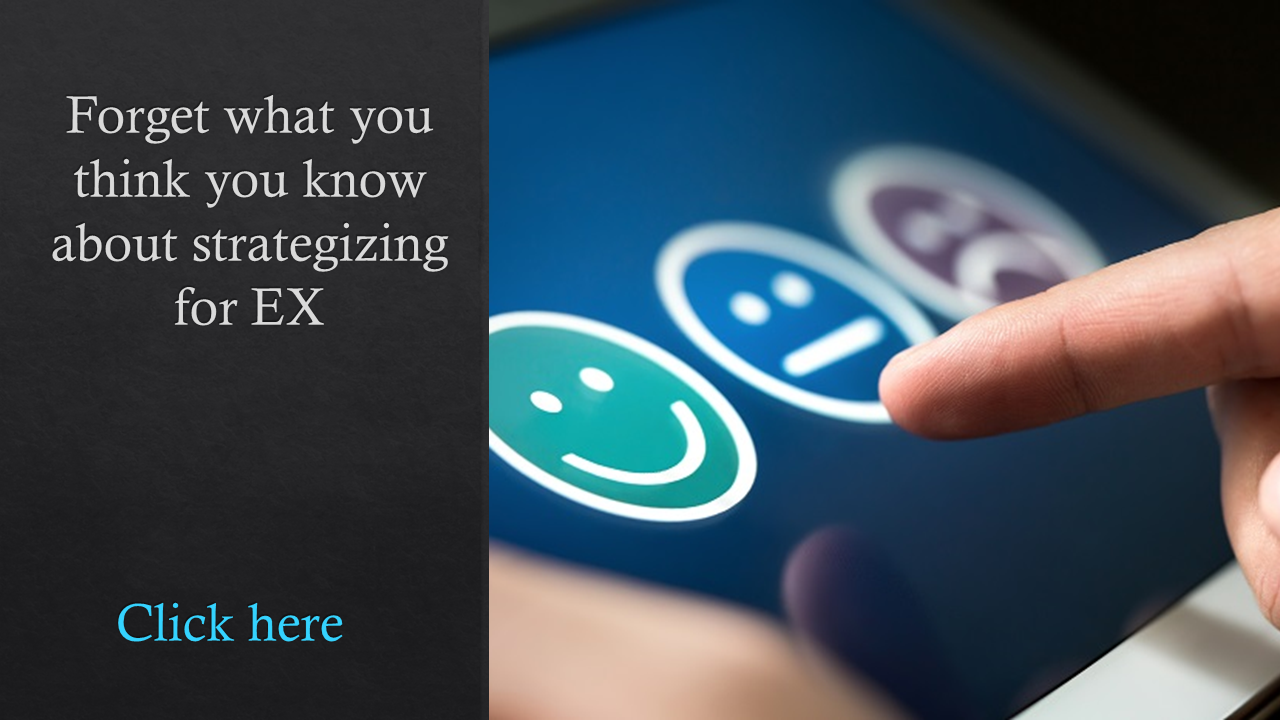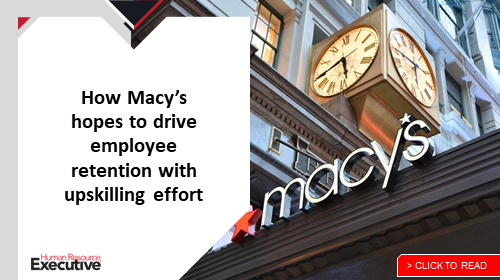As the workforce continues to transform, the increasing emphasis on skills is becoming clearer: Employers are lessening the focus on degrees and specific experience and instead are evaluating current and future employees by the capabilities they possess that could help the organization succeed in the future. At HCM provider Workday, the organization is tapping into its own technology to help identify and cultivate the skills it needs for tomorrow.
Earlier this year, the company rolled out a skills-based people strategy, leveraging tools like its Career Hub—through which employees can target certain skills and connect with new gigs—along with extensive skills reporting for leaders. Workday Chief People Officer Ashley Goldsmith—who joined Workday in 2013 after HR leadership roles at organizations including Polycom and The Home Depot—recently shared the impetus and goals for this new focus, as well as her outlook on HR’s heightened importance.
HRE: Can you talk about Workday’s vision for internal skills development, and how you plan to continue to incorporate employee feedback into this skills strategy?

Ashley Goldsmith
Goldsmith: We’re focusing on skills, which helps us create new opportunities for our employees and, in turn, helps the business become more agile. When you understand the skills of the organization and you enable employees to activate those skills, you create a lot more options for how your work gets done. At Workday, we’re doing that through the use of gigs—employees can sign up for a project and people leaders leverage gigs to help support their work if their teams are at capacity. We’ve surveyed employees and managers who’ve taken advantage of these opportunities and the initial findings are really encouraging: 95% of gig participants said they’ve been able to build on their existing skills or build new ones, and 96% of gig hosts said they have better results and efficiency on their teams. We plan to continue to incorporate employee feedback through surveys and make adjustments based on employee needs.
HRE: How do you see this approach—and any other revamped retention strategies—as helping Workday to reduce flight risk amid the “Great Resignation”?
Goldsmith: I think anything that Workday or any employer can be doing to help employees take on new skills, learn new things, broaden their aperture, broaden their toolkit of what they have as experiences—that drives retention. Data has shown that for a long time. As people learn new things and challenge themselves, they feel more connected to their work, more excited about what they’re doing and they want to keep doing that. As we are producing these opportunities for people to gain new skills and take on new roles as a response, we do see that as increasing the attractiveness of the organization and increasing retention.
See also: Here is what’s needed to close America’s skills gap
HRE: What HR-related issue, whether at Workday or in the wider industry, has been keeping you up at night recently?
 Goldsmith: The employee experience has always been top of mind at Workday but the pandemic brought it to the forefront—in particular, with an emphasis on health and wellness. With so many challenges over the last year-and-a-half and rapidly changing employee needs, the need for data is particularly critical—on [employees’] experience, on the programs we offer, on what the business needs. We leverage weekly surveys to keep a pulse on our employee sentiment and identify drivers of engagement. We started offering Thank You Fridays as a result of employees telling us they needed a break after all they had dealt with, so it’s a day the entire workforce can take time to recharge and focus on their personal wellbeing. Hiring is also top of mind right now. We announced earlier this year that we’re setting a goal to increase our workforce by 20% so our team is very focused on sourcing external talent, as well as identifying opportunities for internal mobility and reskilling.
Goldsmith: The employee experience has always been top of mind at Workday but the pandemic brought it to the forefront—in particular, with an emphasis on health and wellness. With so many challenges over the last year-and-a-half and rapidly changing employee needs, the need for data is particularly critical—on [employees’] experience, on the programs we offer, on what the business needs. We leverage weekly surveys to keep a pulse on our employee sentiment and identify drivers of engagement. We started offering Thank You Fridays as a result of employees telling us they needed a break after all they had dealt with, so it’s a day the entire workforce can take time to recharge and focus on their personal wellbeing. Hiring is also top of mind right now. We announced earlier this year that we’re setting a goal to increase our workforce by 20% so our team is very focused on sourcing external talent, as well as identifying opportunities for internal mobility and reskilling.
HRE: So far throughout the pandemic, in what ways do you think your HR team has made the greatest contributions to the organization?
Goldsmith: I need to give a big thank you to the whole HR team at Workday. They have worked tirelessly, and I’m very grateful for all they have contributed. We have a lot to be proud of as we move into the coming year. At Workday, we kept our employees at the forefront throughout the pandemic. We made a commitment to them from the start that we would prioritize their health and safety, even before we knew what the pandemic would become. In the beginning, we gave everyone a one-time bonus and contributed $1 million to an employee relief fund. Those investments, especially in a time of such uncertainty, helped to reinforce to our employees that they can have trust in the company and the leadership team, and it paid off. Employees stepped up in incredible ways and have helped millions of other workers around the world in these unique times.
Read more Insights from a CHRO here.
 HRE: How has the HR role itself been reshaped since you entered the industry; what’s been the biggest driver of those changes?
HRE: How has the HR role itself been reshaped since you entered the industry; what’s been the biggest driver of those changes?
Goldsmith: I certainly think we’ve seen an acceleration in the spotlight on the importance of HR in almost every way—elevating the employee experience, supporting belonging and diversity, adapting to workforce and talent management shifts. And recent events like [the push for] social justice stretched our responsibilities like never before. I’m excited because it’s given us an opportunity as a profession to show what we can do. And it’s a change that will continue. At Workday, I’m really proud of us as a company. We’ve always focused on doing the right thing—like [prioritizing] employee experience, belonging and agility—but what’s changed has been the intensity and urgency in these areas.
HRE: What is one thing your colleagues may be surprised to know about your life outside of work?
Goldsmith: Well, I am a passionate animal advocate. Growing up, I dreamed of becoming a vet—but allergies led me to a career focused on humans! Fortunately, I’m still able to put my love of animals to work on the board of the San Francisco SPCA.